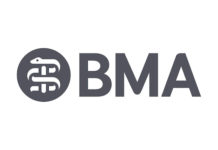Landmark Schizophrenia Study Recommends More Therapy
Results of a large government-funded study call into question current drug heavy approaches to treating people diagnosed with schizophrenia. The study, which the New York Times called “by far the most rigorous trial to date conducted in the United States,” found that patients who received smaller doses of antipsychotic drugs with individual talk therapy, family training, and support for employment and education had a greater reduction in symptoms as well as increases in quality of life, and participation in work and school than those receiving the current standard of care.
Brain Response to Antidepressant Mirrors Placebo Effect
People diagnosed with severe depression show the same changes in brain scans when they respond to a placebo as they do when they take an actual antidepressant, according to a new study. Researchers also found that those whose symptoms were decreased by a placebo were more likely to report relief from antidepressant drugs.
“Controversial ‘Female Viagra’ Hits the Market, New Questions Arise”
Despite concerns about the drug’s necessity, effectiveness, and side-effects, Flibanserin (Addyi) has come to market as the first drug designed to increase sexual desire in women
Bernie Sanders Opposes Califf for FDA Post Cites Industry Ties
Bernie Sanders joins numerous public health groups and opposes Robert Califf's nomination to lead the FDA over industry ties.
Over Ten Thousand Unfiled Claims Against Risperdal Over Breast Growth in Young Boys
Johnson & Johnson is exposed to personal injury and product liability lawsuits over the failure to warn about Risperdal gynecomastia side effects in boys.
“Holding Big Pharma Accountable: Why Suing the Pharmaceutical Industry Isn’t Working”
Writing for the Huffington Post, Caroline Beaton looks into how drugs continue to make billions in sales even after they lose lawsuits for fraud and misconduct. “The persistence of Big Pharma's fraud despite ubiquitous legal action suggests that our present efforts to hold the industry accountable are ineffective,” Beaton writes. “New polices in motion will make potentially unsafe drugs even easier to bring to market and promote.”
“Maybe Oregon Shooting and Others Aren’t About Mental Illness”
Matthew Cooper, writing for Newsweek, reports that despite the preponderance of political rhetoric about “mental illness” after mass shootings, a review of the research suggests that the connection between mental health and gun violence is dubious.
Mental Health Professionals Critique the Biomedical Model of Psychological Problems
While a great deal of the excitement about advances in psychological treatments comes from the potential for research in neuroscience to unlock the secrets of the brain, many mental health experts would like to temper this enthusiasm. A special issue of the Behavior Therapist released this month calls into question the predominant conception of mental illnesses as brain disorders.
SSRI Antidepressants Increase Surgery Risks
There is accumulating evidence that taking SSRI antidepressants increases the risk of bleeding and other complications during surgery, according to a review published in the British Journal of Anaesthesia.
Video: “How Childhood Trauma Can Make You A Sick Adult”
Dr. Vincent Felitti details the connection between childhood trauma and negative mental health outcomes in adulthood in a powerful video.
Report Calls For Policy Changes In Response To Dependence and Withdrawal From Prescribed Drugs
Statistics from the UK reveal that prescriptions for painkillers and antidepressants continue to rise despite concerns over dependence and debilitating withdrawal effects. The British Medical Association (BMA) Board of Science has released a report that acknowledges changes to medical practice, research and policy necessary for addressing the dependence and withdrawal effects of benzodiazepines, opioids, and antidepressants.
Series on Anti-Psychiatry and Critical Theory for World Mental Health Day
To coincide with World Mental Health Day on October 10th, 2015, Verso Books, the largest independent and radical publishing house released a series of blogs on mental health and critical and antipsychiatry. The posts include pieces on R.D. Laing, colonialism, women’s oppression, delusions and art, “The Happiness Industry,” and social and institutional oppression.
Videos from the 2014 “Transforming Mad Science and Re-Imagining Mental Health Care” ISEPP/UCLA Conference
The joint ISEPP/UCLA conference was held in Los Angeles on November 14-16, 2014. Today, ISEPP and the UCLA Luskin School of Public Affairs are delighted to bring you videos of 13 of the 15 invited plenary talks. Each video is accompanied by a crisply written interview with the speaker, focusing on the goals of their work, challenges facing their profession, and how they evaluate any salient changes in mental health practice and research. These smartly produced and edited videos range from 20 to 30 minutes in length and are freely available on www.TransformingMadScience.com
Transforming Mad Science and Re-Imagining Mental Health Care Videos Released
This morning, TransformingMadScience.com released thirteen 20-30 minute video presentations from the 2014 International Society for Ethical Psychology and Psychiatry (ISEPP) conference at UCLA. The videos include presentations by Bonnie Burstow, Laura Delano, Allen Frances , David Healy, Peter Gøtzsche, Pascal-Henri Keller, John Read, Tomi Gomory, Shannon Hughes, Jeffrey Lacasse, David Cohen, François Gonon, Jonathan Leo, Peter Whitehouse, Robert Whitaker, and Keith Hoeller.
University Owes Mistreated Psychiatric Subjects an Apology
The University of Minnesota recently announced that it is ending the controversial practice of recruiting study participants from patients involuntarily being held in their psychiatric unit. In a commentary for Minnesota’s Star Tribune, bioethicist and MIA contributor Carl Elliot reports that the university has still not apologized to the patient who spoke out against this practice. Instead, “the university has done its best to discredit him.”
Nominee to Lead FDA Removed Name From Recent Publications
Sheila Kaplan for the Boston Globe reports that Dr. Robert Califf, the Obama administration's nominee to lead the Food and Drug Administration (FDA), has removed his name from a series of scientific papers that he recently coauthored. The decision to remove his name, against publication ethics standards, has brought Califf under renewed criticism.
Benzodiazepines Linked to Treatment Resistant Depression
Prior use of benzodiazepines, such as Xanax, Librium, or Ativan, may increase the risk of treatment-resistant depression (TRD), according to a new study published in The Journal of Nervous and Mental Disease.
Questions Remain About New “Smart Drug” Modafinil Safety
A number of news outlets have been reporting on a review of modafinil, labeled the new "smart drug," this week. The review in question summarized the recent literature on the drug but others have claimed that the authors underestimated potential side-effects.
Emphasis on Nutrition Needed to Reform Mental Health Treatments
Even thought current mental health treatments are “suboptimal,” there is a lack of attention paid to the preventative effects of diet and nutrition. Recent studies suggests that nutritional changes can influence the risk for mental health issues and that nutritional supplements, called nutraceuticals, can be prescribed for existing conditions.
Genetic Tests Marketed to Psychiatrists Not Supported by Research
With the explosion of genetic testing and the emerging field of pharmacogenetics, patients can now take a DNA test and receive psychiatric drug recommendations customized to fit their genetic makeup. In an editorial for the latest issue of the Journal of Nervous and Mental Disease, Columbia University Psychiatrist Robert Klitzman warns that clinicians need to be aware of the limitations of these genetic tests being marketed to them.
“New Psychiatric DNA Testing Is Unproven Ground”
NBC News reports that "Genetic tests to identify the most effective psychiatry drugs are the hot new thing in the race to create personalized treatments based on people's DNA.” An investigation by the New England Center for Investigative Reporting, however, found that these new tests are based on small studies conducted by device manufacturers, and those with financial conflicts on interest.
“Treating Parkinson’s Psychosis With Antipsychotics May Boost Death Risk”
The Psychiatric Advisor reports on new research from King’s College London that suggests that antipsychotics can cause serious harm to people with Parkinson’s.
“Exercise Is ADHD Medication”
Writing in The Atlantic, James Hamblin reports that research continues to show that physical exercise is integral to “childhood cognition and brain health,” especially for children who exhibit symptoms associated with ADHD. These findings, Hamblin comments, have been discussed with a “phenomenal degree of reservation compared to the haste with which millions of kids have been introduced to amphetamines and other stimulants to address said ADHD.”
Psychotherapy Effectiveness for Depression Inflated by Publication Bias
While publication bias has been known to overestimate the efficacy of antidepressant treatments, a new study suggests that research on the use of psychotherapy in depression suffers from a similar bias.
Antidepressants’ Superiority to Placebo in Major Depression Challenged By Reanalysis
The October edition of the Journal of World Psychiatry, the 3rd ranked journal of Psychiatry, will publish a reanalysis of antidepressant efficacy versus placebo in major depression. When the researchers, Arif Khan and Walter Brown, analyzed the data from the FDA archives for antidepressants approved between 1985 and 1997, “it was evident that the conventional wisdom of 70% response with antidepressants was at best an overestimate.” In fact, “the magnitude of symptom reduction was about 40% with antidepressants,” compared to “about 30% with placebo.”











